Is your company still uncertain about whether investing in sustainability can yield real returns?
Climate impact initiatives are no longer just a moral imperative for companies; they are a financial necessity. We understand that making the business case for sustainability often goes beyond pitching the benefits for the planet, and companies need to be able to measure the ROI of sustainability initiatives. As regulation tightens, customers demand greater transparency, and supply chains face disruption from climate-related impacts, the crucial question for retail brands, marketplaces, circular platforms and supply chain stakeholders is no longer “should we invest in sustainability?” but “how soon and how smartly can we do it?”
The good news is that investing in sustainability offers substantial return on investment (ROI) across various business facets, including sales, operations, employee productivity and brand equity. The time for harnessing and assessing the ROI of sustainability initiatives is upon us. This guide unpacks the tangible and intangible benefits that sustainability delivers, backed by data and retail-specific examples.
Why and how companies are benefiting from the ROI of sustainability initiatives
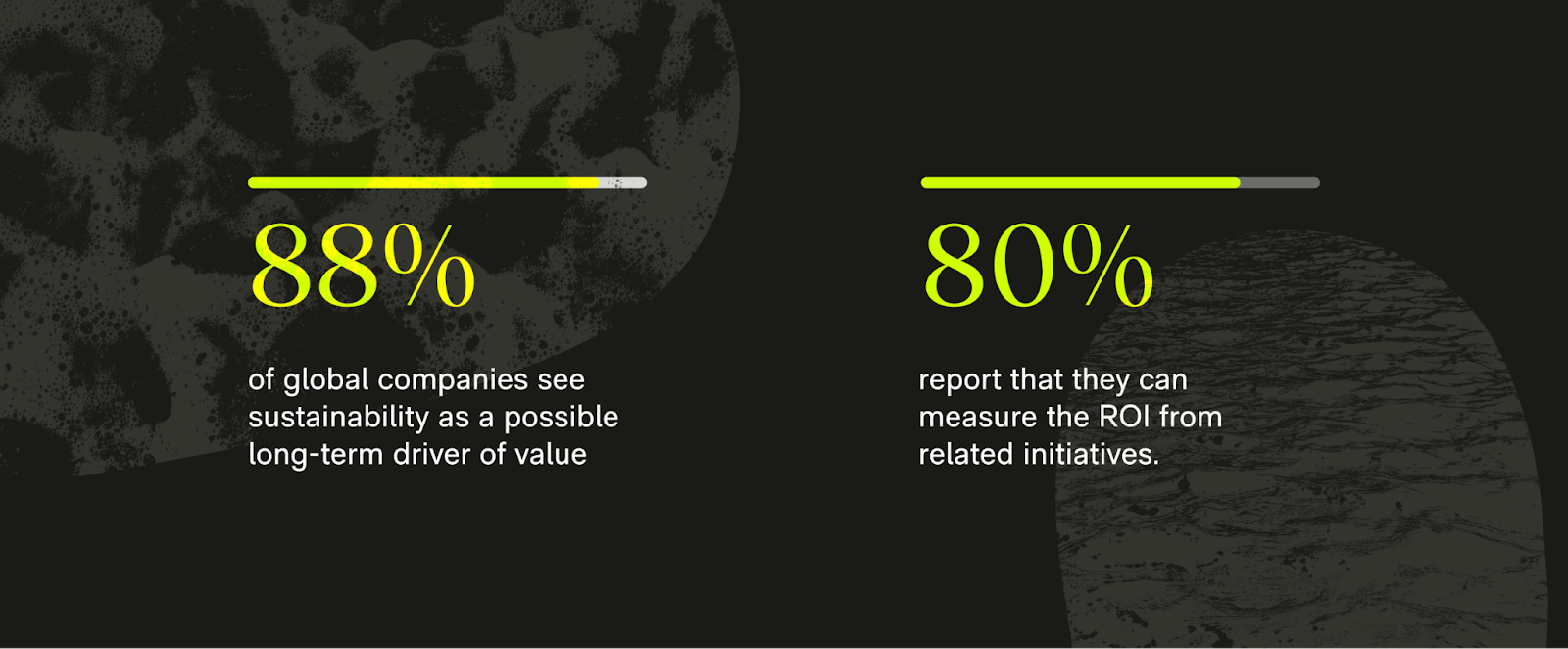
Previously viewed as a cost center, today, sustainability is increasingly recognized as a value generator. According to a recent study conducted by Morgan Stanley, 88% of global companies see sustainability as a possible long-term driver of value, and over 80% report that they can measure the ROI from related initiatives.
Why? Because sustainability touches every aspect of a business, from product demand and customer retention to employee productivity and operational efficiency. Research highlights that intangible assets can make up most of a company’s total value, with another study estimating hidden intangible value to be 4-10x greater than visible, tangible value. For retail, this means better brand loyalty, fewer returns and stronger market positioning.
In a crowded landscape where brand differentiation is critical, embracing sustainability is proving to be a strategic move. And as measurement tools continue to advance, the return on investment of a comprehensive sustainability strategy has become increasingly evident.
Boosting product sales with sustainability and improving your sustainability strategy
Sustainability isn’t just an ethical imperative; it’s a powerful revenue driver that has proven market advantages. This is key when it comes to making the business case for sustainability and defending your sustainability budget. The long-term ROI of sustainability initiatives is becoming more apparent to companies within retail, both for market leaders and smaller brands and businesses.
McKinsey’s findings demonstrate that products making sustainability claims saw 28% cumulative growth over five years, compared to 20% for those without such claims. On Amazon, the ‘Climate Pledge Friendly’ label led to a 13-14% rise in demand in just eight weeks.
Other retailers like Farfetch have also seen ‘Conscious’ products outperform, achieving a sales growth 16 percentage points quicker than their overall sales. Providing clear product footprint data, for example, product detail page (PDP) signposting such as information on CO₂ data, packaging info and product origin, can increase ‘likeliness to buy’ by up to 30%, especially among highly sustainability-engaged consumers.
This product footprint impact extends beyond mere visibility. It translates into increased conversions, enhanced customer loyalty and real revenue growth for companies willing to integrate sustainability data throughout the buyer journey, from product page and checkout to confirmation emails and even post-purchase impact receipts, like the Swedish clothing brand Asket.
Driving revenue through trust and loyalty
When it comes to driving and assessing the ROI of sustainability initiatives, sustainability has moved from a niche interest to being more central to consumer expectations.
Forbes highlighted a study revealing that consumers overwhelmingly favor brands dedicated to environmental and social responsibility: 87% of consumers say they’d choose a product that supports environmental or social causes if given the chance, with 88% feeling greater loyalty to these brands.
Notably, 70% of consumers across sectors such as automotive, construction, and electronics said they would even be willing to spend an additional 5% for lower-impact products, as long as they perform just as well as a conventional one.
In today’s market, where trust is paramount, transparency directly impacts ROI. Therefore, by leveraging clear, verified data from life cycle assessments (LCAs), which offer their own additional set of benefits, and implementing automated sustainability tools, companies can enhance trust and build long-term customer loyalty.
Operational savings and efficiency
Sustainable operations offer significant returns on investment primarily through cost and waste reduction. For example, McKinsey reports that over 50% of consumers will wait three days or longer for bundled deliveries if it reduces impact, while ”green nudging” strategies reduce product returns by 2.6% and reduce average return value by 3.3%.
In retail, effective strategies that enhance the long-term ROI of sustainability initiatives include bundled shipping, optimized packaging and low-emission delivery. These choices can be extremely beneficial for improving efficiency in processes that are labor- and resource-intensive. For logistics-heavy retailers, these strategies are particularly helpful, as they both advance sustainability efforts while generating substantial cost savings.
Measuring global logistics emissions like Veja recently did alongside Vaayu is one solid place to begin for brands wanting to harness the long-term ROI of sustainability initiatives, since logistics is responsible for a large portion of company impact, yet also offers a great opportunity for cost savings through measurement and optimization.
Retaining talent and improving productivity
People want to work for purpose-driven companies. Organizations that are ahead in social sustainability see 11.4% higher productivity. A strong and credible sustainability strategy reduces attrition, boosts employee engagement and builds resilient teams that stay longer and work better.
It’s no surprise that employees want to work for and are happier in companies that align with their values. A survey released by Deloitte recently indicates that over 70% of Gen Z and Millennials consider a company’s commitment to sustainability when choosing an employer. This preference highlights sustainability’s growing influence on retention and loyalty, as purpose-driven work becomes more sought after. This cultural shift reflects a transformation in how people view work, beyond simply earning a paycheck, but as an opportunity to express their personal values and contribute to social and environmental justice.
Employee happiness is just one of the drivers of the ROI of sustainability initiatives. Companies can save money on recruitment and onboarding costs through improved employee engagement and retention, negating the expenses associated with hiring for open roles and the technologies aiding the hiring process.
Future-proofing through compliance
Sustainability legislation is rapidly catching up, and although it has felt daunting for many businesses, it can also serve as a powerful lever to drive the ROI of sustainability initiatives. From the CSRD and the ESPR to the introduction of Digital Product Passports (DPPs), brands face increasing requirements to disclose detailed impacts such as product footprints across their entire value chains.
Investing in sustainability initiatives today, such as climate tech and sustainability reporting software, not only helps ensure compliance with evolving regulations but also secures a strong ROI tomorrow by mitigating regulatory and reputational risks. This means that incorporating legislation into retail sustainability strategies is no longer optional but a strategic necessity.
For example, as regulations like the DPPs roll out, investing in sustainability offers a strategic advantage. By getting ahead of legal requirements and embedding transparency at the product level, businesses can reduce risk exposure, avoid costly penalties and unlock new opportunities for brand trust, operational efficiency and measurable ROI of sustainability initiatives.
Ultimately, the ROI of Sustainability Initiatives goes far beyond compliance; it’s a catalyst for business transformation. Companies that invest in sustainability now are not only protecting the planet but also unlocking long-term value through stronger customer relationships, operational efficiency, and competitive advantage in an increasingly climate-conscious market.
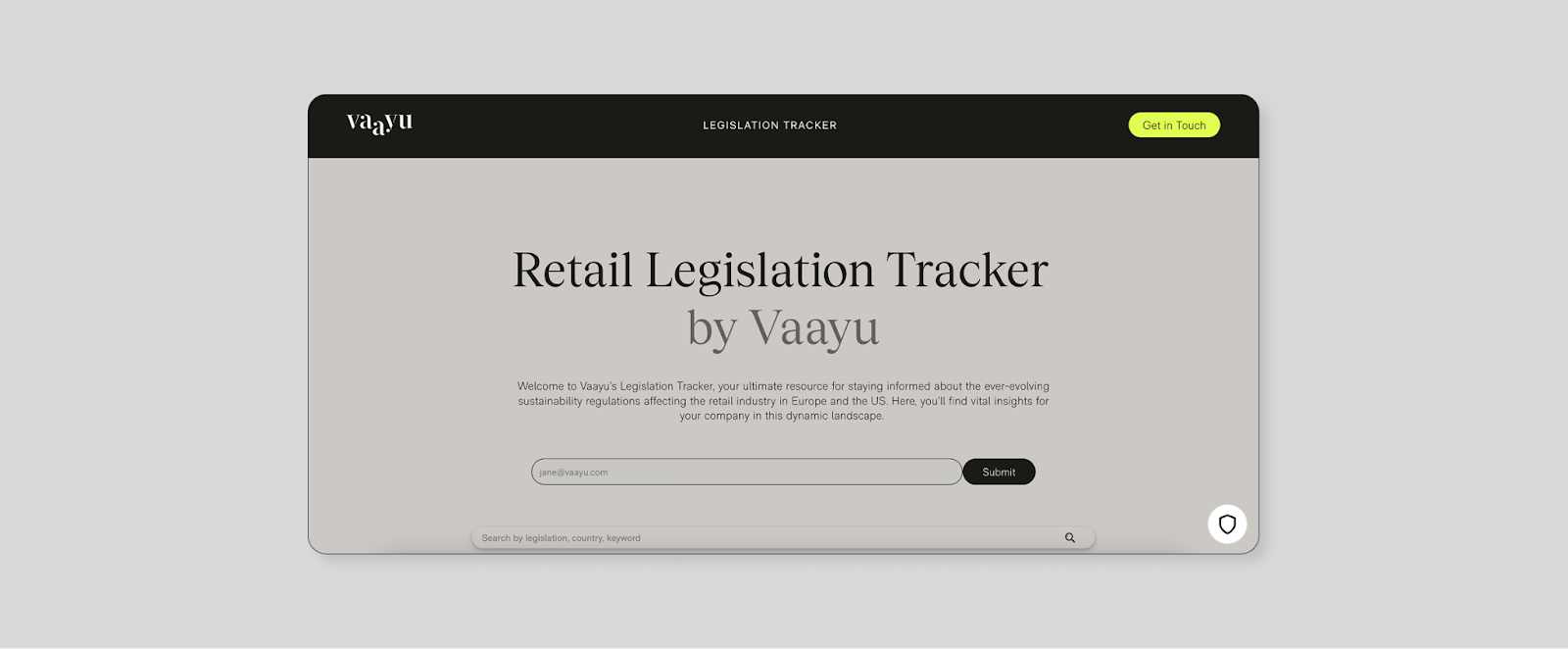
To find out more about the legislation affecting retail and ROI, check out Vaayu’s free Legislation Tracker.
How to measure the ROI of your sustainability initiatives
Measuring and assessing the ROI of sustainability involves going beyond traditional financial returns to capture the complete value generated by environmental and social initiatives. Companies can achieve this by integrating quantitative metrics, technological tools and strategic KPIs that link environmental achievements with business performance.
1. Use carbon accounting & ESG software
Adopting ESG and carbon management software is becoming one of the most effective, essential tools to measure and communicate ROI. These tools streamline emissions tracking (Scopes 1, 2 and 3), calculate reduction impacts and can even deliver audit-ready reports. A significant 86% of global executives say ESG and carbon accounting software has enhanced the quality of their sustainability reporting, underscoring the growing importance of sustainability reporting software and carbon management software as a business imperative when it comes to ROI.
2. Conduct Life Cycle Assessments (LCAs)
LCAs help quantify environmental impacts at every stage of a product’s life, from raw materials to end-of-life. They can surface hotspots when it comes to a company’s biggest impacts and reveal areas where sustainability efforts, such as material substitutions or packaging redesigns, can reduce both carbon emissions and costs.
3. Define clear sustainability KPIs
Set SMART (Specific, Measurable, Achievable, Relevant, Time-bound) sustainability objectives. These could include:
- % reduction in emissions (total or by Scope)
- € saved from energy-efficiency improvements
- Shareholder value created (e.g., Unilever linked 75% of its growth to sustainable brands)
- Employee retention linked to sustainability culture
4. Quantify financial wins
Sustainability efforts can directly translate into financial gains through various operational savings:
- Energy efficiency: Lower utility expenses due to reduced energy consumption.
- Waste reduction: Decreased costs from fewer returns and less waste, achieved through strategies like “green nudging”.
- “Green” financing access: Opportunities to secure loans, tax breaks and ESG-linked funding.
Companies demonstrating robust ESG performance typically benefit from lower capital costs, which are said to be up to around 10% cheaper on average.
5. Capture intangible returns
While challenging to measure, ROI also comes in the form of:
- Enhanced brand reputation and trust: Cultivating a stronger public image and fostering greater consumer confidence.
- Increased employee engagement and productivity: Leading to a more motivated workforce and improved output.
- Stronger customer loyalty: Evidenced by consumers’ willingness to pay a premium for sustainable products, nearly 10% more for sustainability-produced goods.
6. Engage stakeholders early
Collaborating with employees, suppliers and investors in sustainability initiatives helps integrate these efforts with business objectives. This multi-stakeholder approach leads to better data, greater impact and builds long-term buy-in.
7. Track and adapt over time
The ROI of sustainability is not static but highly dynamic, necessitating ongoing reporting, benchmarking, and scenario modeling. This approach allows businesses to monitor progress, identify new opportunities, and proactively stay ahead of evolving regulations such as the CSRD and ESPR.
Understanding the ROI of sustainability initiatives empowers companies to align climate action with measurable business returns, from cost savings and compliance to increased brand loyalty and investor appeal. By integrating the appropriate tools, metrics and strategies, businesses can track their impact in real time and prove that sustainability is not just ethical, it’s profitable.
What sustainability ROI looks like with Vaayu
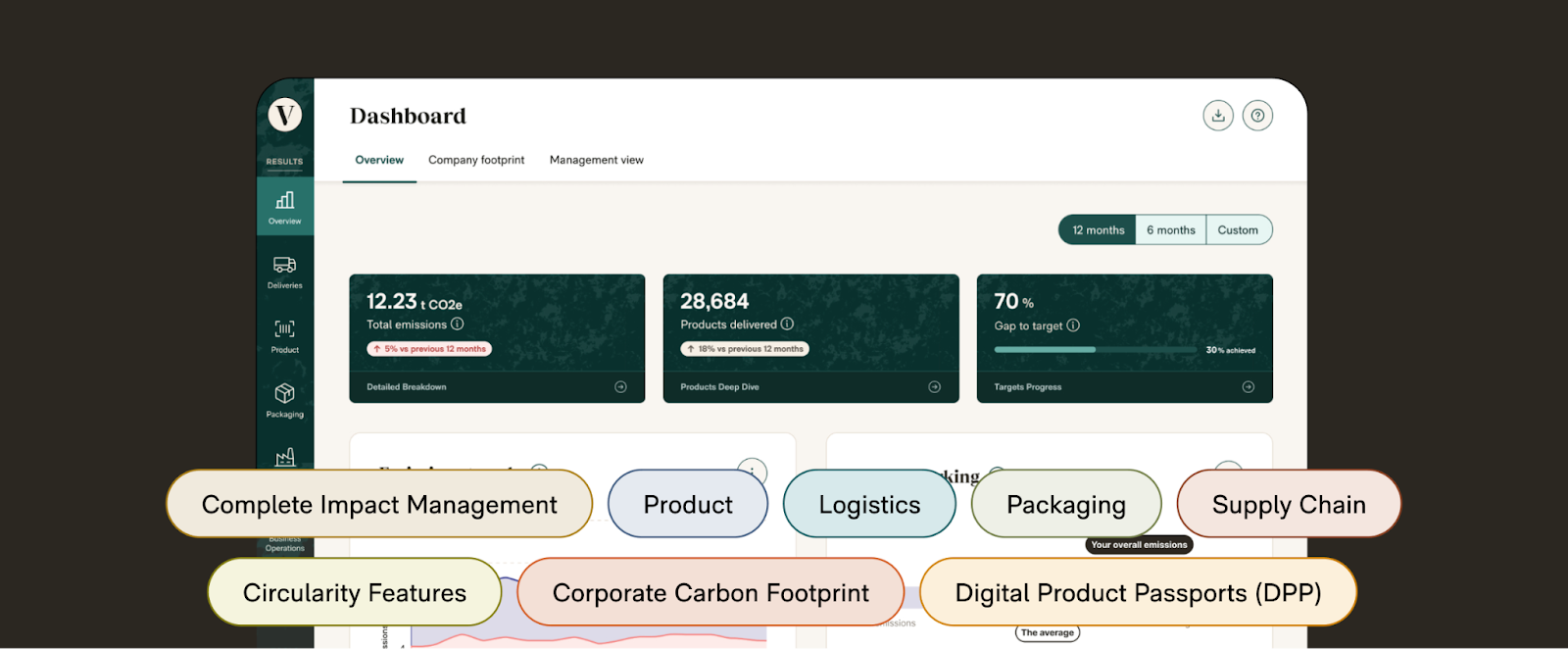
Vaayu’s climate tech platform empowers retailers with real-time carbon measurement and reduction tools built specifically for the industry. Our carbon management software enables companies to accurately measure, actively reduce and effectively communicate climate impact across logistics, product design, circular business models and beyond.
With solutions ranging from customer-facing DPPs to automated LCA calculations for product and supply chain, Vaayu’s solutions provide partners with enhanced data accessibility, increased business visibility and actionable impact.
This means that adding sustainability data to touchpoints throughout the buyer journey is not only achievable but also encouraged. With internal expertise across retail impact communication and effective climate data applications, Vaayu’s partners are increasingly leveraging Vaayu and its carbon accounting software as a one-stop shop solution for both calculating and communicating their impact.
For example, jewelry brand Missoma partnered with Vaayu to launch its first DPPs, tracking every component of a piece from metal to factory, providing customers with greater transparency in their jewelry’s origin. Similarly, Triumph has begun using DPPs with Vaayu to provide detailed product life cycle information, such as composition and recycled materials content, engaging consumers along the product journey and aligning with new regulatory demands.

And signposting climate data on platforms like Farfetch has been proven to drive measurable uplifts in sustainable-product performance, including a 10% higher conversion rate for ‘conscious’ vs. ‘non-conscious’ products. Additionally, the share of shoppers buying at least one sustainable product rose by 11 percentage points (from 16% in 2021 to 27% in 2022); and searches for conscious-related terms surged 78% year-over-year.
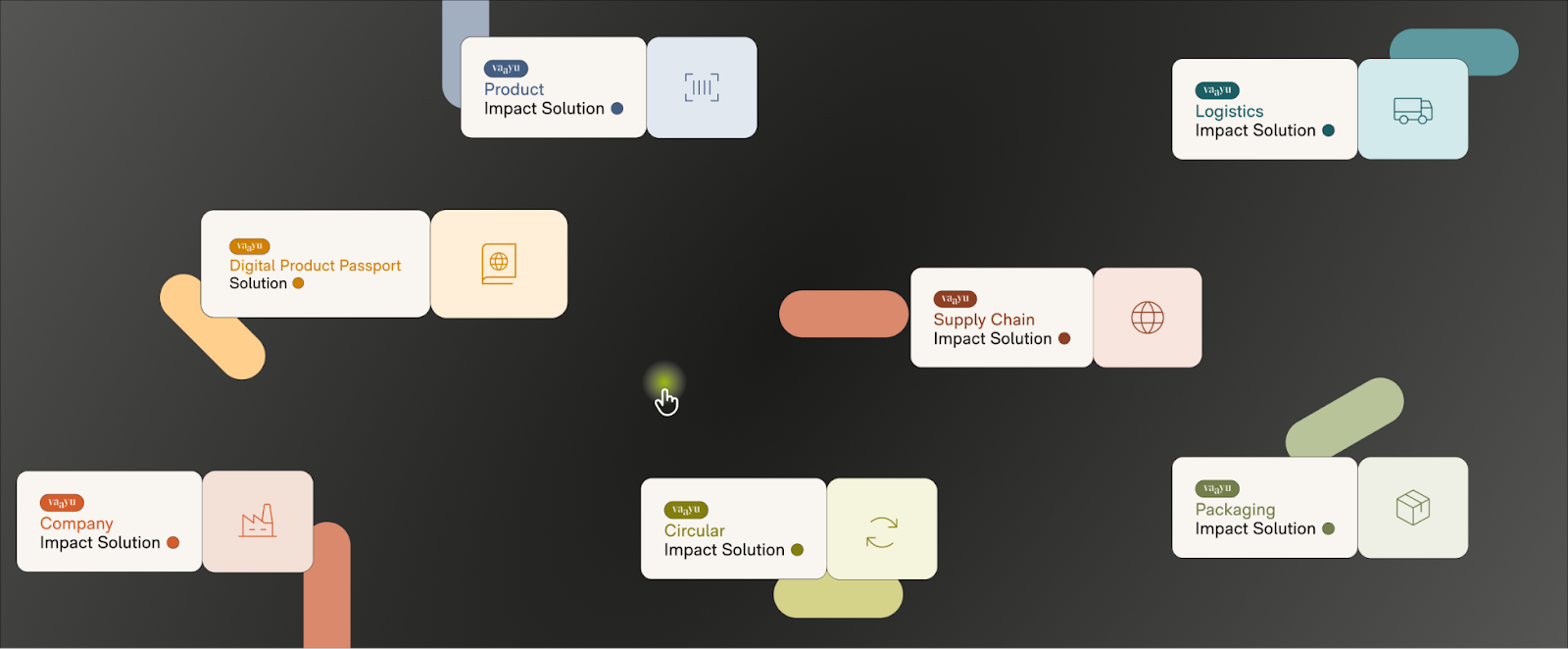
So, Vaayu powers leading global brands to model reductions, quantify improvements, meet compliance, communicate progress with customers and future-proof their entire business and supply chain. With Vaayu, your team can not only build a compelling business case for sustainability but also measure and maximize the ROI of sustainability initiatives.
Sustainability is a business imperative
Sustainability is no longer a trade-off; it’s a clear business advantage. Businesses worldwide are already leveraging sustainability data to lead markets, outperform competitors and attract both customers and talent.
With increasing legal scrutiny on supply chains, product impact and business operations, progress impact increasingly under legal scrutiny, progress towards reductions is already underway. So why not make the most of the resulting data? With impending legislation on the horizon and pressure from various stakeholders, the question is not whether sustainability provides a return on investment, but rather whether you are prepared to capture it.
If you’re looking to turn sustainability investments into measurable returns, connect with Vaayu’s experts today. Our team combines impact-accounting expertise with retail-focused ROI focus to help you plan, track and maximize the business impact of every sustainability investment.



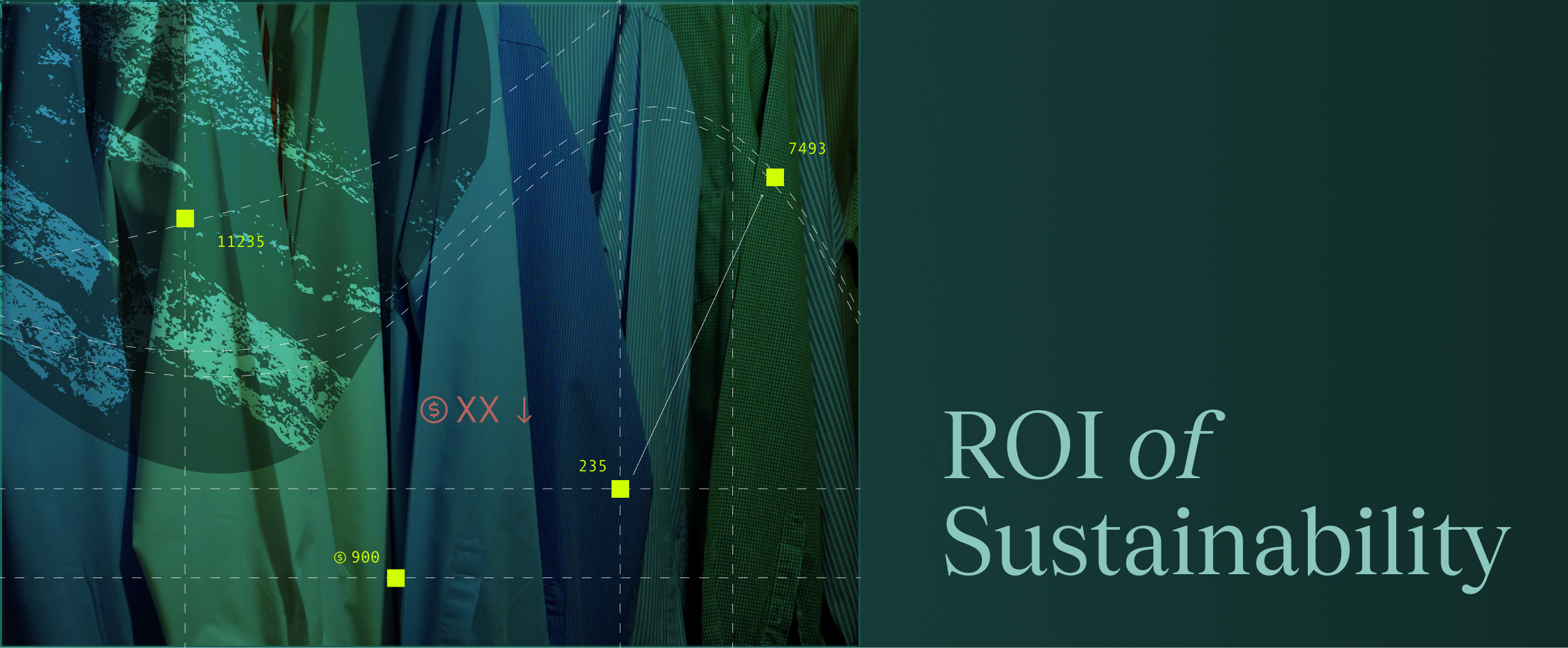


.png)

.png)
